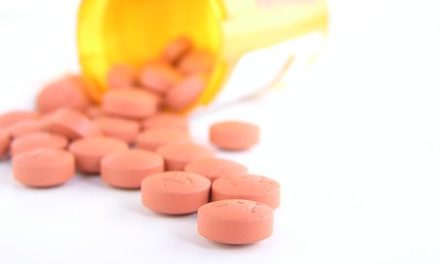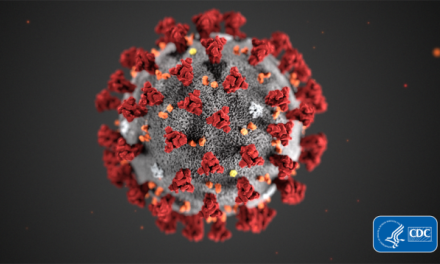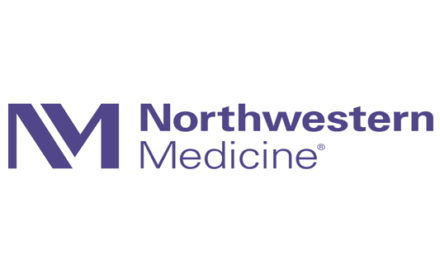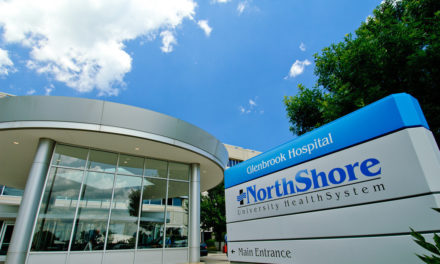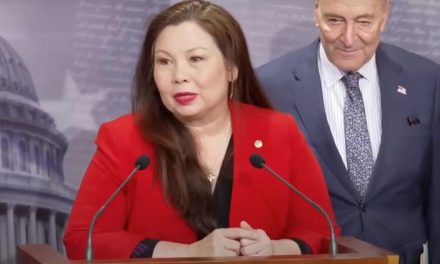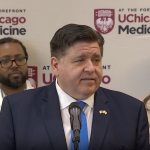
Vohra, Hasbrouck reflect on COVID-19 public health emergencies, next steps
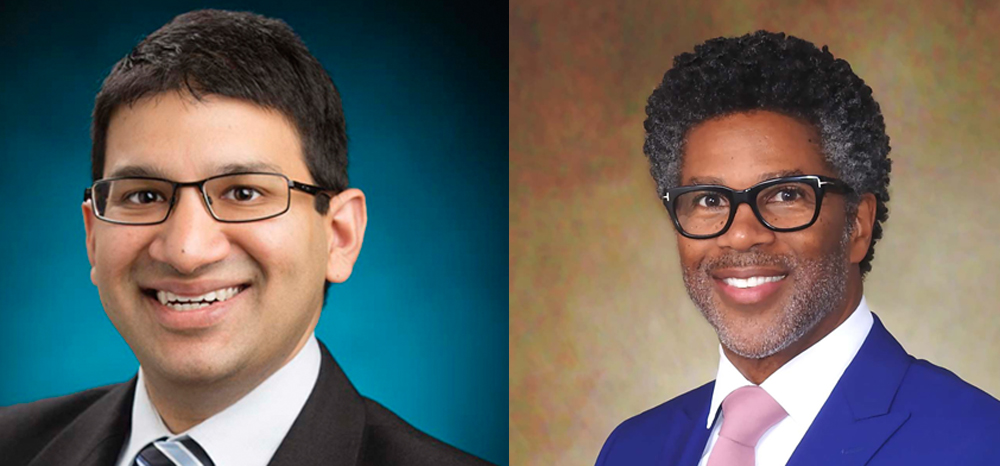
Thursday marked the end of the state and federal COVID public health emergencies after three years of being in place.
Their termination brings several changes that impact coverage for COVID-19 vaccines and other services.
Health News Illinois spoke this week with Department of Public Health Director Dr. Sameer Vohra and Dr. LaMar Hasbrouck, chief operating officer of the Cook County Department of Public Health, on the challenges facing health agencies as they transition to a post-pandemic world and the lessons learned during the emergencies.
Edited excerpts below:
HNI: What does the end of the emergencies mean?
LaMar Hasbrouck: There’s what it’s going to mean and what it should mean. What it’s going to mean for many people is that the worst is behind us. We can get back to the old normal versus the new normal, and we can let our guard down, and thank goodness that we survived it … What it should mean is that there is still this virus that is circulating. It’s still mutating. At any given point in time, it can mutate into a variant of concern that’s going to be more transmittable and more deadly, and we should not let our guards down … Also, what it’s going to mean is that some of the freebies, in terms of the general care with expanded Medicaid … and then some of the COVID-related care … are not necessarily going to be free anymore, so that’s going to be a changed dynamic as well.
Sameer Vohra: It’s … just a moment to know how much we’ve lost, to remember that, keep us going and really learn the lessons that we need. Yes, we are prepared for the next public health emergency, but we have to do everything every day to make sure that we stay prepared. One of these big focuses is that infectious disease will always be an important part of public health, but we need to really begin telling the full story and working on all issues, so that we can unify health and make sure that we’re keeping every community in our state as healthy as possible.
HNI: How will this impact people’s ability to access resources and care?
LH: Getting free test kits … that is going to be a challenge for some folks because where before they could get them just by going online and ordering them, where they could go to a retail pharmacist and get the free testing, now they have to make that decision: Can I afford the test? Am I going to prioritize it? Thankfully, as a local health department, we’re going to still be giving out free tests. We’re going to be that resource for many folks, as well as some of the other free things we’ll do with transportation and vaccines and all of the rest.
SV: What people weren’t used to was the public health system really being at the front of the care of this disease, right? What they’re going to see is that it’s back to how they usually get care. They’re going to go to the hospital. They’re going to go to their doctor’s office to get that test, to get their vaccination, to get their treatment. Luckily, both with the federal government and the state government, we are investing in continuing many of those services, especially as long as those supplies continue to exist, but it’ll be important for individuals to know to get their care for COVID, just like they get their care for everything else.
HNI: What do you see as challenges as we transition from the emergencies?
SV: One of the things that we all learn in emergency preparedness and disaster preparedness is that, as tough as the event is, what is often the most challenging and the longest part is the recovery period … We really, during COVID, concentrated around health equity. We knew that certain groups were going to face different burdens of disease from COVID. But that’s also true for heart disease, it’s true for HIV, and (we need) a real understanding and that commitment to making sure that we’re providing those services to those in most need and really bridging those inequities … It’s about a unified vision. We can’t think about public health and then think about our healthcare system. It has to be one system, one system that thinks about prevention first and concentrates on that while also figuring out the incredible technologies.
HNI: What is Cook County doing to make sure that residents have a smooth transition?
LH: The first thing we’re doing is educating folks. We’re educating them to say, yes, the emergency phase is over, but there remains a certain level of threat. We’ve got great muscle memory from the last three years. You should continue to do things like wash your hands and stay home … and stay aware or mindful of where you are in terms of your vaccination status …
The second thing we’re doing is making sure folks know that we’re still going to be standing in the gap for them in terms of giving them guidance as things change, still monitoring the situation … We’re going to still be doing vaccinations at home, vaccinations at some of these pop-up locations. We’re still going to be arranging transportation for folks who might need it … Lastly, making sure folks know that, if they’re on Medicaid, they need to make sure they’re (redetermined), so they don’t fall out of the cracks, because we know that the Medicaid rolls are going to contract a little bit as folks get back working.
HNI: What are some of the key takeaways?
LH: We got to have a plan that is evergreen. We have learned from our after-action reports the things we did well, the things we didn’t do so well. So let’s polish up the plan and make sure we’re retooling the plan … The ‘getting stuff’ is where we really fell down and competed with other states and other counties, so paying some attention and directing some resources to how we can create more of an easy button for procuring things … And then the third thing is to do stuff. What we’ve learned is that, from a policy standpoint, we have to spend a little bit more time in the coordinated response … Mobilizing volunteers, we had a lot of challenges doing that.
SV: We’re stronger together, right? And part of that means, yes, maybe we don’t want to think about public health every single second again. Let’s have people enjoy all the things that make them happy – enjoy their families – but we should think about health as one of those priority things that we need to invest in every single day both for ourselves, our families, our community, and from a policy perspective. Keeping that foundation strong, working on inequities, building the things that we need — like data, workforce — and really concentrating on those connected pieces, so that we can get information, react to it and have that information that extends not on one disease but connects those diseases together.
– Ryan Voyles and Elizabeth Casolo for Health News Illinois

